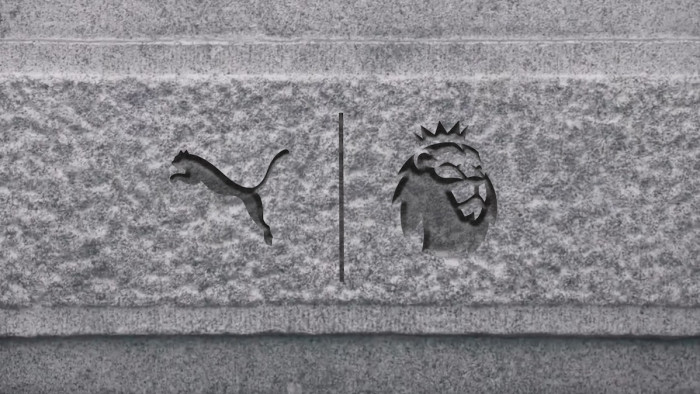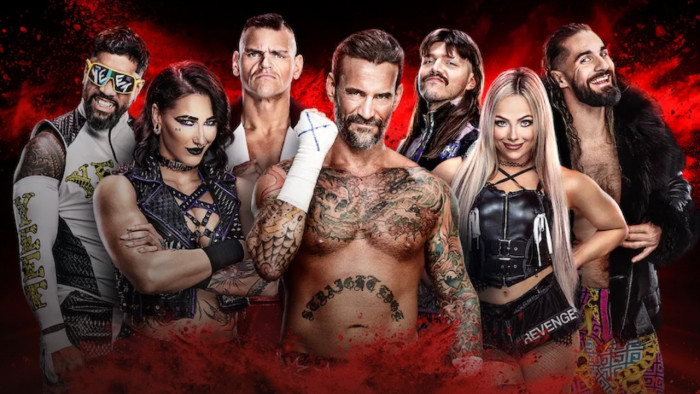Why Gareth Southgate is more than just a ‘feel good football story’
How the England manager’s kindness, empathy and human touch have created a new template for success


The 2018 World Cup produced many impactful, beautiful images, but there is one that rises high above the rest: a man – broken, weeping into his shirt – being comforted by another: strong, avuncular, in a fine-fitting waistcoat. It was taken after England beat Colombia on penalties to progress to the quarter-finals on 3 July. Having hugged and kissed his own players, manager Gareth Southgate made straight for the player whose miss had set up England’s victory, took him tenderly in his arms and whispered words of consolation in his ear.
The moment was so strikingly tender that it sparked its own Twitter movement.
“#GarethSouthgateWould politely ask football if it wanted to come home first, then contact its parents and ask if it was OK” was one offering.
“#GarethSouthgateWould listen earnestly to all that Glenn Hoddle has to say” was another.
This was not just a random act of magnanimity, but one of heartfelt empathy. After all, the 47-year-old knows better than almost anyone how it feels to smite a nation’s dreams. He did so himself as a player, when his penalty miss sent England out of the European Championship in 1996. Trafalgar Square was trashed in the hours after the match, the worst trouble London had seen since the Poll Tax riots.

So Southgate made amends the only way an English footballer can: by appearing in a soul-crushingly humiliating Pizza Hut advert, in which he wore a paper bag on his head and walked into a wall. Recently he revealed that, such was his pain over that night, he hadn’t been able to listen to the song Three Lions since. Perhaps now he can.
When, 22 years later, England did finally win a World Cup penalty shoot-out, the nation stuck to the script. The internet was flooded with videos of fans screaming, throwing their pints in the air and smashing up emergency vehicles. It was a scene that contrasted sharply with Southgate’s display of decency. That night, he showed a nation what it means to be a man in 2018.
“Gareth Southgate gives modern men permission to be both powerful and compassionate,” says masculinity expert Kenny Mammarella-D’Cruz, also known as ‘The Man Whisperer’.
“In consoling Mateus Uribe he demonstrated emotional depth and empathy beyond the stiff upper-lip of the fearful little boy. The mature male doesn’t suppress or deny these traits, but is able to balance them with fierce, linear, tactical traits, resulting in a more authentic, more individual, well-rounded character. Even down to his waistcoat, he’s an individual man. He’s saying, ‘Be yourself.’”
“There is an idea among many men that in order to lead and get things done, you have to be an aggressive bully”
Football is everywhere. It’s in the cinema, in TV ad breaks, on Tube station platforms and in the newspapers. And as long as football has been in our lives, so has ‘the football man’.
Hard-nosed, burning-breathed and occasionally psychotic, the football man was a tyrant of the technical area and – ‘when all’s said and done, Clive’ – the only type of man you could trust to manage a football team.
And it’s not just in football. “There is an idea among many men that in order to lead and get things done, you have to be an aggressive bully,” says Mammarella-D’Cruz. “Very often they are the ones who make the most noise and force themselves into power. These are the men who break spirits. They force people, split them, humiliate them. It’s all panic and pure adrenaline. And there can be a time and a place for that. But if that is your only personality then it’s not going to be great when you’re teaching your son his times tables.”
Wouldn’t you have loved Southgate to teach you your times tables? Sweet, soft-spoken and, by all accounts, unflappably nice, he is far from a fire-breathing ballbreaker with windmill arms and hairdryer lungs.
Compare him, say, to former England boss Fabio Capello, who Rio Ferdinand once accused of bringing a “prison-camp mentality” to training. Or Argentina’s current manager Jorge Sampaoli, who spent most of this World Cup bouncing up and down the touchline, bellowing orders until his face went puce, and once reportedly told a traffic warden, “You barely make 100 pesos a month, you fool.”
It’s impossible to imagine Southgate saying that. Look at his Twitter feed and most of his tweets are him wishing people good luck or calling out The Daily Telegraph for suggesting netball makes girls fat. He’s been with his wife Alison for more than 20 years, supports countless charities and even allows the ghost of a 17th-century thief named Robinson to freely roam the grounds of his North Yorkshire mansion.
As for his England team, it seems happier, hungrier and more humble than it has for generations. Just ask Danny Rose, who credits Southgate with helping him out of depression ahead of the World Cup. “England has been my salvation and I can’t thank the manager and the medical staff enough,” he said. Southgate also gave Fabian Delph permission to fly home mid-tournament to attend the birth of his third child, saying, “Family is more important.”
“It’s impossible to imagine previous England managers allowing their young charges to playfully cavort atop rainbow-horned pool toys, let alone encourage them”
“Being respectful of others is central to having them want to follow you,” says leadership expert Steve Radcliffe, who knew Southgate when he managed England’s Under-21s. “The old story of leadership, about being strong and hierarchical, is rubbish. Southgate has focused on the importance of relationships and done a great job of making everyone feel valued and included.”
During the tournament, players went bowling and played basketball, darts, pool and the ancient Indian sport of kabaddi; they went sightseeing in Saint Petersburg and spent time with their families. He even bought them inflatable unicorns to splash about on during cool-down sessions in the pool. It is impossible to imagine any previous England football boss allowing his young charges to playfully cavort atop rainbow-horned pool toys, let alone encourage them to do so.
“The history of English footballers is that they turn up and they’re fearful,” adds Radcliffe. “But Southgate has united everyone behind him and got out their glorious side. The secret to successful leadership is connecting with people so they do their best for you. That’s the space that leadership has to exist in, rather than screaming at someone, ‘I know best.’”

Friends of the former Crystal Palace, Aston Villa and Middlesbrough captain say we should be careful not to push the Nice Guy theory too far. “I get a bit cross when people say he’s just nice because, actually, he can be quite cold and steely when he needs to be,” former Palace boss Alan Smith, who has mentored Southgate since he was 16, tells me. “You can’t play 57 times for England, captain three different top-flight teams and just be perfectly nice. When he’s upset with you, he lets you know.”
Another Alan Smith, the one who played for Arsenal in the Nineties and whose memoir Heads Up (Constable), is out next month, has a different take.
“He wasn’t overly physical, he wouldn’t try to intimidate you; you wouldn’t say he was quick or particularly good in the air,” he told me from a beach in Barbados. “His strongest qualities were his focus, his will to win and his willingness to take responsibility. He was obviously a natural leader, always talking to his teammates.”
“In Gareth Southgate, England – Britain, really – has found a leader it can look up to”
One such teammate was Geoff Thomas, whom Southgate replaced as Palace captain in 1993. “He wasn’t a shouter like me, but he wasn’t scared of voicing his opinions when all the flak was flying around,” he says.
He remembers Southgate as a team player to the core.
“We weren’t a bunch of heavy drinkers,” he recalls. “But we were encouraged to celebrate victories, and Southgate was always on board. Whether he could handle his beer back then was another matter. I remember one incident in a lift during a youth team tournament that ended in him getting a dry-cleaning bill from our chairman. Let’s say the chairman got caught in Southgate’s crossfire.”
Southgate was no pushover. “It was a bear pit, that Palace dressing room, full of quick-witted south Londoners. But Gareth’s put-downs were the cleverest in the squad by a mile. A smile was never far from his face.”
He adds: “Mind you, I’m not sure about this waistcoat-modelling thing he’s doing now… Back then, his dress sense wasn’t as sharp as his mind.”

The era of tough-talking tyrannical managers – both on and off the football pitch – is over. “In the old days, men weren’t supposed to talk about anything: survive, compete, don’t show pain – that’s the way of a man,” says Mammarella-D’Cruz. “But men are finally learning to communicate and Southgate embodies this perfectly. He is giving men permission to be more human, more open, more honest with people around them. He is present and connected and he gets on with it. He is also great at retreating and thinking things through.”
In Gareth Southgate, England – Britain, really – has found a leader it can look up to. Not only has he single-handedly saved the UK waistcoat industry, but he has also shown us the value of compassion, courtesy, dignity, graft and that most ridiculed of virtues: niceness. He has redefined not just how to be a manager, but how to be a man.
“Knowing him as I do,” reflects Smith (the former Palace boss), “Gareth is not a showman. He’s a solid, decent bloke. He listens to people, takes in everything and uses the best of everybody to improve himself and those around him. It’s never about him, it’s always about other people. He’s a natural-born leader.”
And that’s why, when England eventually succumbed to Croatia in a World Cup semi-final that they seemed – for the first hour of the match – fully capable of winning, there were no histrionics. Southgate did not tear his waistcoat off in frustration.
Rather, he placed a reassuring arm around the shoulders of goalkeeper Jordan Pickford. He hugged a teary-eyed Marcus Rashford, consoled a distraught Harry Kane, congratulated each and every one of the Croatian players, and embraced his wife (below right). And the 10,000 travelling England fans in the stadium – and many millions more in pubs and living rooms back home – reacted in kind. There were no boos, no hisses, no threats of violence towards players or manager. Instead, there was applause; heartfelt applause from football fans who had witnessed not just a moment of sporting history, but of human dignity.
For the man whose penalty miss sent England home at Euro ’96, his redemption was complete. And while football may not have come home – as so many people had hoped and dreamed and chanted about for the duration of the tournament – the England manager brought back from Russia something perhaps more precious and rarer still: a sense of decency, of respect, of kindness and humility.
(Images: Rex/Getty)
Latest
Related Reviews and Shortlists









